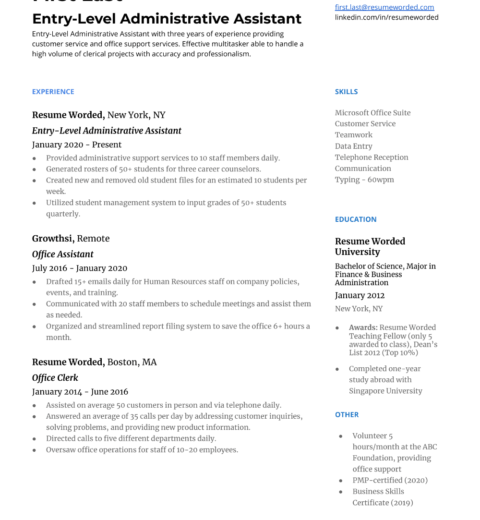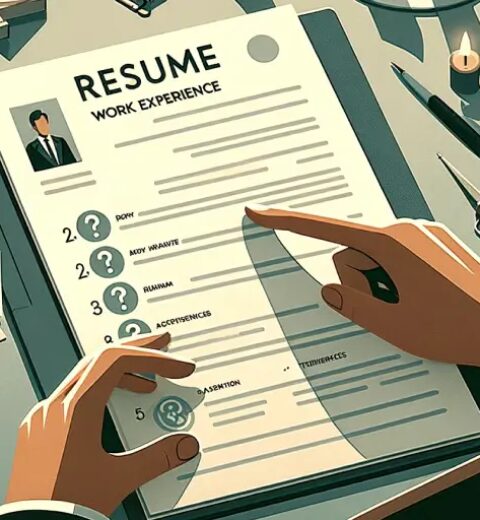When crafting a resume, the inclusion of educational qualifications is often as pivotal as the portrayal of work experience. Have you ever pondered the significance of how you present your educational background? This seemingly straightforward task can turn into a complex puzzle. The challenge lies in effectively showcasing your degrees, dates, and details in a manner that captivates hiring managers while conveying your academic journey with precision. How can one navigate this intriguing labyrinth of educational credentials? This article serves to explore the nuances of integrating education into your resume with clarity and impact.
First and foremost, the structure of your education section should be strategic. Typically, this section appears after your professional experience. However, for recent graduates or those with limited work experience, placing education at the forefront can shine a light on your qualifications. Consider this: how does one decide the most advantageous position for their educational information? The answer often hinges on relevance. If your academic achievements are directly aligned with the job you are pursuing, they deserve precedence.
In the conventional layout of an education section, it is advisable to include the institution’s name, location, degree obtained, and graduation date. For instance:
- Degree: Bachelor of Arts in Psychology
- Institution: University of Example, City, State
- Date of Graduation: May 2023
Such an arrangement allows a clear dissemination of credentials, but what if you have multiple degrees or a particularly diverse educational background? In this scenario, individuals may consider creating subheadings under the education section to categorize by degree type—such as undergraduate, graduate, and certifications. This not only creates clarity but also showcases the breadth of your academic pursuits.
Beyond mere dates and degrees, consider enriching the education section with details that illuminate your achievements. Have you engaged in a notable project, upheld an impressive GPA, or perhaps exercised leadership in relevant extracurricular activities? These components can add substance and character to your educational narrative. For example:
- Thesis: “The Impact of Social Media on Adolescent Mental Health”
- GPA: 3.8/4.0
- Extracurricular Activities: President of the Psychology Club; Volunteer at the Local Mental Health Center
Many candidates grapple with the decision of whether to include their GPA, especially if it is not exemplary. It is often advisable to weigh your GPA against the norms of your industry. In the realm of academia or research-oriented roles, a high GPA might be critical, while in other fields, it may hold less significance. When in doubt, opt for a holistic portrayal of your academic prowess by emphasizing projects and roles that demonstrate skills applicable to the position.
Furthermore, embracing brevity is paramount. The education section, while crucial, should not overshadow your work experience. Resumes serve as a snapshot of your professional capabilities; thus, it is essential to balance the detail provided in each section. A concise education entry enhances readability, steering the reader towards key qualifications that resonate with the job description.
As you contemplate designations and institutions, do not overlook the significance of minor but impactful elements such as honors. If you graduated with honors or received scholarships, these should be highlighted prominently—perhaps even through a separate section labeled “Honors and Awards.” This not only emphasizes your academic dedication but also distinguishes you from a multitude of applicants. In competitive job markets, differentiators like these become exceedingly valuable.
What happens if your educational journey diverges from the typical path? For instance, if you have pursued online education, taken courses at community colleges, or engaged in continuing education programs, don’t shy away from detailing these as well. The contemporary landscape of education often values diverse learning experiences, particularly in fields that evolve rapidly. Including alternative educational credentials can reflect your commitment to lifelong learning and adaptability.
Moreover, credentials in a foreign language could present unique challenges. In such cases, it is prudent to provide translations or explanations of degrees, ensuring that hiring managers can appreciate their relevance without ambiguity. Including a note indicating that your education was completed in a different country can also foster transparency regarding equivalences and potential insights into your diverse background.
Ultimately, the education section of your resume encapsulates not just where you studied but how your academic experiences parallel your career aspirations. Each line should resonate with intentionality and purpose, tethering your educational background to the skills required in your desired role. The challenge lies in this narrative weave—how do you effectively present education to mirror your unique trajectory and ambition?
In conclusion, the art of incorporating your education into a resume is both strategic and reflective. It is a delicate balance of clarity and detail, designed to construct a narrative that not only showcases accomplishments but also aligns with career objectives. The next time you draft your resume, remember: clarity in the education section can be your clandestine weapon, ensuring you stand out in the competitive arena of job seekers. Engage strategically, and let your education enhance your professional story.




